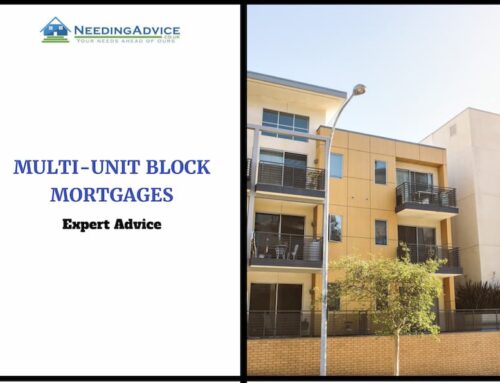Moving House Mortgage
Getting a moving house mortgage is always a complicated process in the UK. In this helpful guide on moving house mortgages for existing properties, we discuss the topic in detail. If you are interested in a similar mortgage, you can contact our team of mortgage brokers.
It is estimated that about a half of homebuyers are already on the housing ladder – moving from their old home to a new one – and the remaining purchasers are first-time buyers, reported the Guardian newspaper on the 4th of January 2022.
So, if you are an existing mortgage customer moving house, what are your options for managing a future loan?
Whether you are looking to trade up, downsize, or want to live in a different neighbourhood, there are several options for home mover mortgages.
Those options fall into two broad choices where you may:
- transfer your existing mortgage to your new home – in the language of mortgage lenders, this is known as “porting”; or
- you could instead pay off your existing mortgage and start all over again with a new, replacement mortgage.
To decide between these two options, you will need to balance the respective pros and cons very carefully – and to help you to do justice to that, you might want to consult an experienced mortgage broker.
Porting a Mortgage: What You Need to Know
Porting is the term mortgage lenders use when you transfer your existing mortgage –together with all its terms and conditions – from your old house to the new home you are buying.
Most mortgages have the capacity for porting in this way. Since many also incur penalty charges for early repayment, being able to port your existing mortgage is not only convenient but also avoids any such penalty.
But don’t expect it all to be necessarily plain sailing – there are still specific issues you might want to consider, which may vary from one lender to another. Once again, therefore, an early consultation with an independent mortgage broker might be the prudent course of action.
Remortgage with a New Lender: Exploring Your Options for Moving House Mortgages
When considering your options for moving house mortgages, switching to a new lender may offer an opportunity to secure a better mortgage deal or adapt to your changing financial needs. A remortgageRefinancing an existing mortgage with a new mortgage. with a new lender involves paying off your current mortgage and starting fresh with a different mortgage provider. This route can be particularly appealing if your current rate is no longer competitive or if you’re looking to leverage the proceeds from your property sale for additional borrowingWhat is Additional Borrowing? A Quick Overview When you take....
Why Consider a New Lender?
Switching lenders could unlock access to a variety of mortgage products tailored to your circumstances, including fixed-rate mortgagesor interest-only mortgages. If your property’s value has significantly increased due to rising house prices, the equityThe difference between the value of the property and the amo... could help you secure better terms. A mortgage affordability calculator can provide a personalised indication of your borrowing power, considering your current financial commitments and monthly payments.
Costs and Considerations
Opting for a new lender isn’t without its expenses. Common costs include:
•Early repayment fees for your existing mortgage, especially if you’re on a fixed deal.
•Product fees for the new mortgage.
•Conveyancing fees for the legal process, which may include working with a licensed conveyancer.
•A mortgage valuation to assess your new property’s worth.
•Removal costs and other unexpected costs like stamp dutyA tax paid by the buyer when purchasing a property. or furniture expenses.
Additionally, factors such as affordability criteria, eligibility criteria, and the lender’s lending criteria will play a role in your application process. Be prepared to provide bank statementsA record of a borrower's financial transactions often requir..., proof of income, and details of your current circumstances.
What Happens If You Need a Larger Mortgage?
If you’re trading up to a more expensive property, you may require a larger loan. Whether you choose a new lender or your current mortgage provider, the lender will conduct a thorough mortgage affordability assessment. This will include evaluating your repayment mortgage plan, the initial interest rate, and your ability to meet monthly repayments. Be sure to discuss protection products like critical illness insurance policies or buildings insurance during your mortgage appointment to safeguard your financial future.
Advantages of Remortgaging with a New Lender
1.Competitive Rates: You may access lower current interest rates or appealing variable rate products.
2.Product Incentives: Some lenders offer products with incentives, such as cashbackA sum of money paid by the lender to the borrower as an ince... or reduced fees.
3.Flexibility: Tailored solutions for different types of property or types of loan can match your specific needs.
Steps to Take
1.Use a Mortgage Calculator: Assess affordability based on your current mortgage balance, anticipated mortgage payments, and any associated costs.
2.Consult Experts: Work with qualified mortgage professionals or independent mortgage advisers to compare the rates for lending and navigate the legal agreement process.
3.Prepare Documentation: Ensure all official documents, such as the Energy Performance Certificate and Property Questionnaire, are in order to streamline your application.
4.Consider Protection Plans: Discuss options for protection products to cover your personal belongings, such as contents insuranceInsurance that covers damage to the contents of a property., buildings insurance, and critical illness cover.
FAQs- Moving House Mortgage
What happens to my mortgage when I move?
Moving house can involve some unexpected expenses. If you plan to sell your current home before moving, you will need to factor these into your budget. You may find it helpful to speak to a financial adviser who specialises in helping people move houses.
Can I move my rate to a property that has recently been bought outright?
No, it is not possible to move your mortgage rate to a property that is already owned or purchased. To move your mortgage rate, you need to buy a property. If you are interested in moving house mortgages, you can contact our team of qualified mortgage advisers.
How much does it cost to move my mortgage?
The amount of money required to move your mortgage depends on how many times you’ve moved in the last five years. The more often you’ve moved, the higher the cost.
The average cost of moving a mortgage is £1,500. This includes all costs involved in moving your home, including legal fees, surveyors fees, removalists fees, storage fees, etc. It doesn’t include the price of buying a new property or home.
Can I move my mortgage rate to a property I purchase for buy-to-let?
No, you can’t move your mortgage rate to a property you purchase for buy-to-let. However, you can transfer your residential mortgage rate to a residential property that you are purchasing. You can always contact a mortgage an independent mortgage broker who can help you with your mortgage application.
Can I get a moving house mortgage with an adverse credit score?
Yes, you can get a moving house mortgage with a poor credit record, but you need to contact an independent broker to apply for the mortgage. Every lender has different criteria for affordability checks, some lenders could accept a poor credit record, but some will not accept mortgage applications with adverse credit ratings.
In addition, if you also have a recent credit card debt, you should avoid credit checks for some period.
How can I check my credit report online?
You can always check your credit report from different credit reference agencies. If you are interested, you can contact a financial adviser for your credit scoring.






